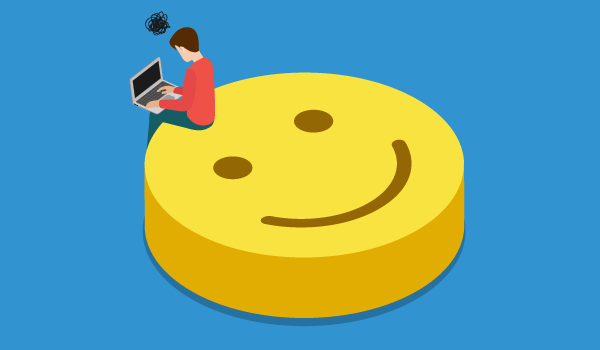You see this headline and your first thought is probably “He’s going to claim that employee happiness is about the manager.” Well, yes. I do believe that. 41% of the global workforce will probably look for a new job sometime in 2017. That’s almost 1 in 2, and almost all the ones who plan to do cite “bad manager” or “relationship with manager” as the reason they want out. But no, that’s not really what this article will be about.
Let’s be clear upfront on employee happiness, though: first off, I doubt many managers or bosses care about it. When they do, it’s usually framed up as a cost issue (i.e. employee turnover), some mission-driven speech at a stakeholders meeting, or in terms around productivity. Phrased another way: we call the department “Human Resources,” and that’s all you need to understand about white-collar work. We don’t view people as people, or humans. We view them as “resources.” Everything is framed up around productivity.
Problem is, “KPI-driven productivity” and “happiness” are not naturally-connected concepts. Hell, happiness itself is not an easy concept to get around. Throw work into this mess. Most of work is unclear as is — one “urgent project” onto the next one with nary a priority in site. As a result, despite decades of research — and “thought leadership” — on employee happiness, no one really knows what exactly achieves that goal. It’s to the point where you could justifiably think of the whole idea of employee happiness as, well, a huge scam.
And now, a new wrinkle: what if it’s not really about the employee at all?
Well then, who would employee happiness be about?
It might be about other employees.
Here’s a new article on Fast Company asking if you want to be “happier and more successful,” which is basically every article of the modern business age. Anyway, I digress. This part is interesting:
It sounds paradoxical, but according to University of Georgia researcher Jason Colquitt and his colleagues, people who tend to trust others at work score higher on a range of measure than those who don’t, from job performance to commitment to the team. And since we know that it’s our relationships—particularly with our bosses and colleagues—that determine how happy and successful we are as our careers progress, it may be worth asking some new questions. Instead of, “How can I improve?” the better question might be, “How can I start seeing more of the good in people, more often?”
Hmm. Makes some sense.
The power of gratitude and friends at work
We know from research — and human logic — that gratitude is important at work, as is having friends there. We all spend a bunch of time doing and thinking work-related things. If you’ve got no real source of connection other than the deliverables and spreadsheets you work on/with, well, that’s a fairly lonely existence all told. Seeing as how we’re social animals, no one really wants that.
This is where we get it all wrong about employee happiness or employee engagement programs. We always think we can “hack” something with a software suite or whatever, but that utterly misses the point. Essentially, what it comes down to is this: your company “culture” is really just the level of connection and “I’ve got your back” in your organization. That’s what it boils down to. Employee happiness and engagement will come from, or recoil from, that.
Yes, bad managers — there are many! — do not help the picture. But employee happiness isn’t about “solving a problem.” It’s about finding ways to build connections and relationships between people. That’s going to drive happiness (which the employee cares about) and productivity (which the manager cares about). It might be one of the only concepts that can get an employee and a boss on the same wavelength, actually, because we all want/need those connective elements.
What else might you add on employee happiness?
